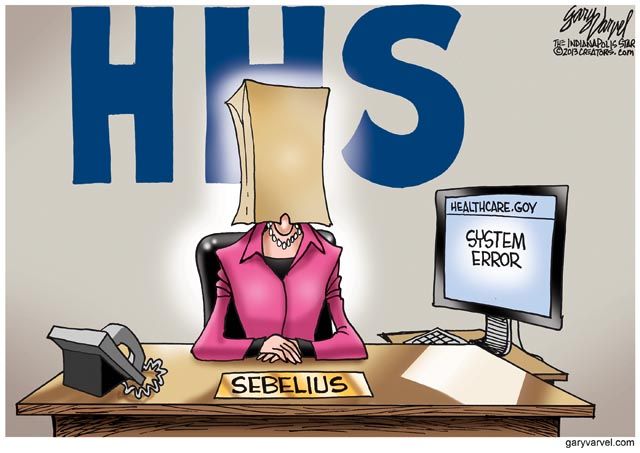QUOTE OF THE DAY
Governing: State and Local Tax Burdens Are Falling — But Not Everywhere
The burden state and local taxes place on taxpayers has fallen after hitting a national high of more than 10 cents on every dollar earned.
The national average for 2011, the most recent data available, was a tax burden equal to 9.8 percent of income, according to a new report by the Tax Foundation, which looked how much people pay in taxes in relation to how much they take in.
The report estimated the tax burden by determining the amount of all state and local taxes paid per capita (including taxes paid in other states) and dividing that by per capita income in each state. The total burden from year to year is impacted by policy changes but also just by changes in income.The nonpartisan foundation, which supports a simpler tax policy and lower rates, used U.S. Census and other federal data on income per capita and taxes paid in-state and out-of-state.
Medill: Alternative proposal to fix pension crisis lands at City Hall
The Illinois Policy Institute submitted a proposal to City Hall on Thursday that it claims will solve the city’s pension crisis without raising taxes.
The proposal would do away with the defined benefit plan, replacing it with a “hybrid retirement plan” that would require employees to contribute 8 percent of their salaries to a retirement investment account.
“Our goal is to say let the workers have control over their own retirement and end politician control of retirements,” said Ted Dabrowski, vice president of policy at the Institute.
Chicago Tribune: That patronage scandal at Metra?
News that comes as a surprise to no one: An investigation by Illinois’ legislative watchdog has found that House Speaker Michael Madigan did not violate the state’s ethics act when he pressured Metra officials to give one of his Democratic foot soldiers a raise.
It’s not because the speaker didn’t intervene on behalf of Patrick Ward, who has donated generously to the campaigns of both Madigan and his daughter, Attorney General Lisa Madigan. And it’s not because there’s nothing wrong with that, either.
It’s because the state ethics act is a disgraceful fraud, designed to provide cover for politicians’ corrupt behavior, not to prevent it. But you knew that.
Daily Herald: Illinois House OKs ridesharing regulations
Illinois lawmakers took steps Thursday toward creating rules for unregulated ridesharing companies, which have gained popularity in Chicago the past few years.
The companies — such as Uber, Lyft, and Sidecar — use smartphone apps to connect passengers with willing drivers. They compete with taxi cab companies but aren’t required to follow any state transportation regulations.
Taxi cab companies, which have lost profits since the arrival of ridesharing in Illinois, have pushed for these companies to be regulated, and lawmakers have voiced concern over driver and passenger safety in the industry. Ridesharing companies and some Republicans say the proposal would all but kill an emerging industry in the state.
Despite looming pension payments, and as the district still reels from budget cuts and layoffs, Chicago Public Schools says it has found a way to slightly increase the amount schools get for each student next year.
The move was immediately criticized as “financially irresponsible” and an “accounting gimmick” by the Civic Federation, a financial watchdog. And parents, while happy schools will get more money, say the increase is not enough to make up for cuts that reached into the millions of dollars at some schools this year.
The district says it’s making an “accounting adjustment.” It plans to give itself a 14-month window to take in revenue next fiscal year, so state and county tax payments that come in during August will still be counted as if they came in before July 1, allowing the district to balance the books and avoid what it says would be “draconian cuts.” It’s at least the third consecutive year CPS has used a one-time fix to come up with a balanced budget.
WSJ: Hike the Minimum Wage? Show Me How
The debate over increasing the minimum wage might seem inconsequential to many Americans. After all, no one would dispute that those employees currently earning the minimum wage constitute less than 2.9% of the total U.S. workforce. One side of the argument talks about fair pay; the other focuses on the potential damage to employment and the economy.
As the head of a national nonprofit organization celebrating 25 years of supporting thousands of people who have severe developmental disabilities, I thoroughly endorse raising the minimum wage to the proposed $10.10 per hour for our thousands of employees who provide this care—with an important caveat. Show me where to find the money.
The majority of my 2,045 direct caregivers make around $8 per hour. Add to this amount fringe benefits such as health-care insurance, overtime and other insurance, and you’ve got $9.80 per hour. Our national budget is close to $100 million. The majority of our revenue is derived from Medicaid billable hours for the people with severe disabilities that we help. Over the past quarter of a century, our organization has essentially broken even—which is the point of a nonprofit. There are many times when we run into a deficit; this is why we fundraise. If we ever have excess income, it is used to develop additional facilities to meet some of the needs of the national waiting list for housing for people with disabilities. There are more than 500,000 people on the list.
LA Times: Congress, extend jobless benefits, again
How’s this for irony: Having allowed federal unemployment benefits to run out in December, some lawmakers are balking at a bill to renew them retroactively because it might be hard to figure out who should receive them. Congress made this task far harder than it should have been, but the technical challenges aren’t insurmountable. Lawmakers should restore the benefits now and leave them in place until the unemployment rate reaches a more reasonable level.
Federal jobless benefits, which are provided only in times of high unemployment, kick in after people have exhausted their state benefits, which typically last for six months. The federal help available in each state gradually shrinks as the economy there improves; as a consequence, the average amount of federal aid offered fell from 59 weeks in January 2012to 29 weeks in December 2013. But rather than allow this process to run its course, Congress let the federal program expire at the end of December, cutting off aid to 1.3 million laid-off workers.
While most lawmakers seemed to want to continue the aid, opponents have offered a variety of reasons not to do so. Lately they’ve questioned the feasibility of making the benefits retroactive. According to an advocacy group for the state agencies that would administer the aid, it would be nearly impossible to determine whether laid-off workers had continued to search for jobs — a prerequisite for receiving aid — during the months without benefits. Yet the federal government has retroactively provided benefits before, and there’s a set of guidelines in place for determining eligibility.
CARTOON OF THE DAY

